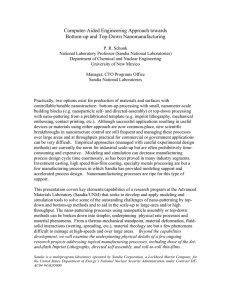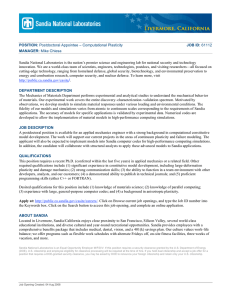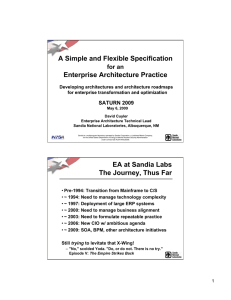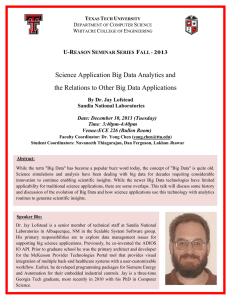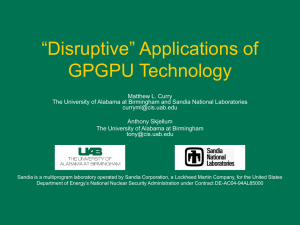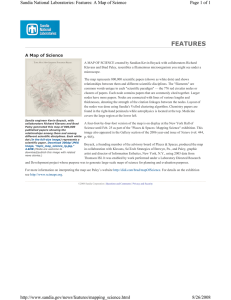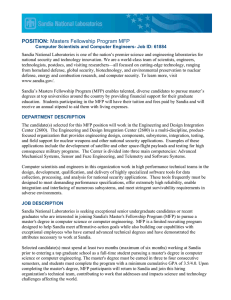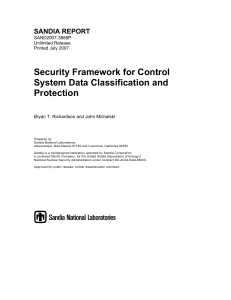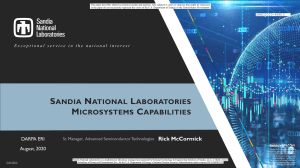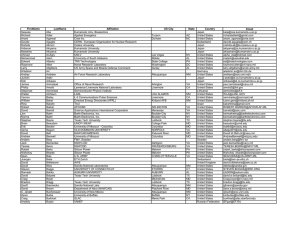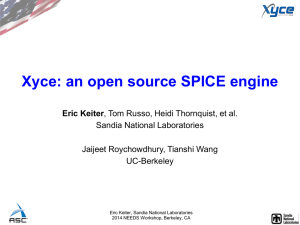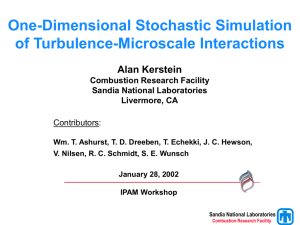Post-Doctoral Research Associate in uncertainty quantification for Unsteady Turbulent flows
advertisement
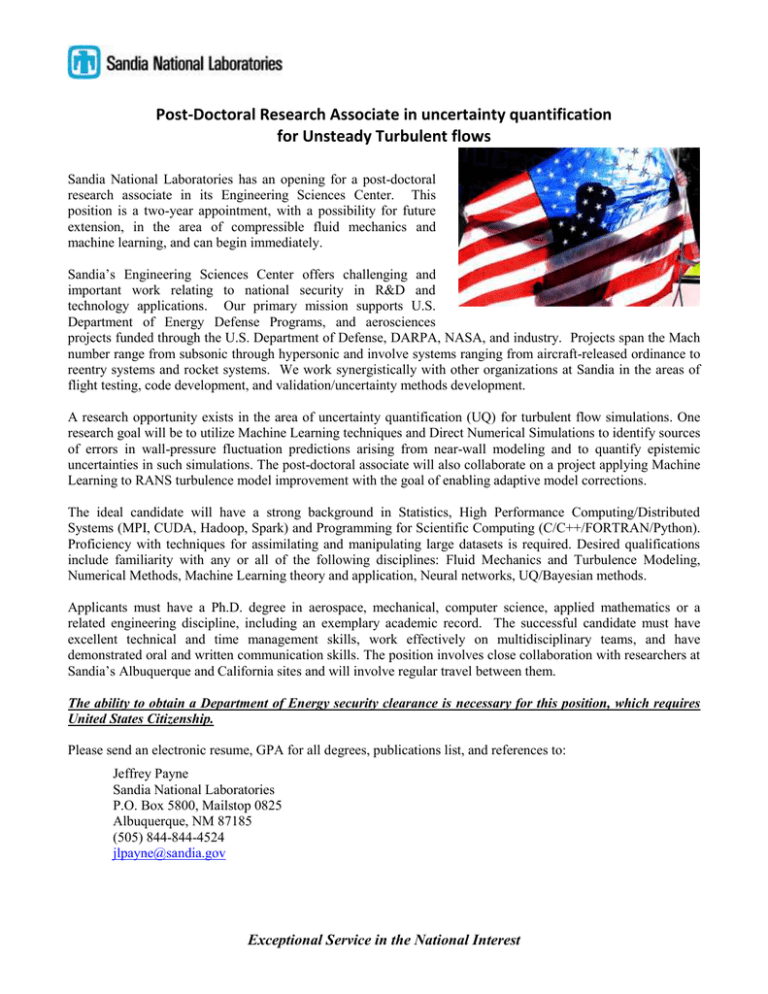
Post-Doctoral Research Associate in uncertainty quantification for Unsteady Turbulent flows Sandia National Laboratories has an opening for a post-doctoral research associate in its Engineering Sciences Center. This position is a two-year appointment, with a possibility for future extension, in the area of compressible fluid mechanics and machine learning, and can begin immediately. Sandia’s Engineering Sciences Center offers challenging and important work relating to national security in R&D and technology applications. Our primary mission supports U.S. Department of Energy Defense Programs, and aerosciences projects funded through the U.S. Department of Defense, DARPA, NASA, and industry. Projects span the Mach number range from subsonic through hypersonic and involve systems ranging from aircraft-released ordinance to reentry systems and rocket systems. We work synergistically with other organizations at Sandia in the areas of flight testing, code development, and validation/uncertainty methods development. A research opportunity exists in the area of uncertainty quantification (UQ) for turbulent flow simulations. One research goal will be to utilize Machine Learning techniques and Direct Numerical Simulations to identify sources of errors in wall-pressure fluctuation predictions arising from near-wall modeling and to quantify epistemic uncertainties in such simulations. The post-doctoral associate will also collaborate on a project applying Machine Learning to RANS turbulence model improvement with the goal of enabling adaptive model corrections. The ideal candidate will have a strong background in Statistics, High Performance Computing/Distributed Systems (MPI, CUDA, Hadoop, Spark) and Programming for Scientific Computing (C/C++/FORTRAN/Python). Proficiency with techniques for assimilating and manipulating large datasets is required. Desired qualifications include familiarity with any or all of the following disciplines: Fluid Mechanics and Turbulence Modeling, Numerical Methods, Machine Learning theory and application, Neural networks, UQ/Bayesian methods. Applicants must have a Ph.D. degree in aerospace, mechanical, computer science, applied mathematics or a related engineering discipline, including an exemplary academic record. The successful candidate must have excellent technical and time management skills, work effectively on multidisciplinary teams, and have demonstrated oral and written communication skills. The position involves close collaboration with researchers at Sandia’s Albuquerque and California sites and will involve regular travel between them. The ability to obtain a Department of Energy security clearance is necessary for this position, which requires United States Citizenship. Please send an electronic resume, GPA for all degrees, publications list, and references to: Jeffrey Payne Sandia National Laboratories P.O. Box 5800, Mailstop 0825 Albuquerque, NM 87185 (505) 844-844-4524 jlpayne@sandia.gov Exceptional Service in the National Interest
